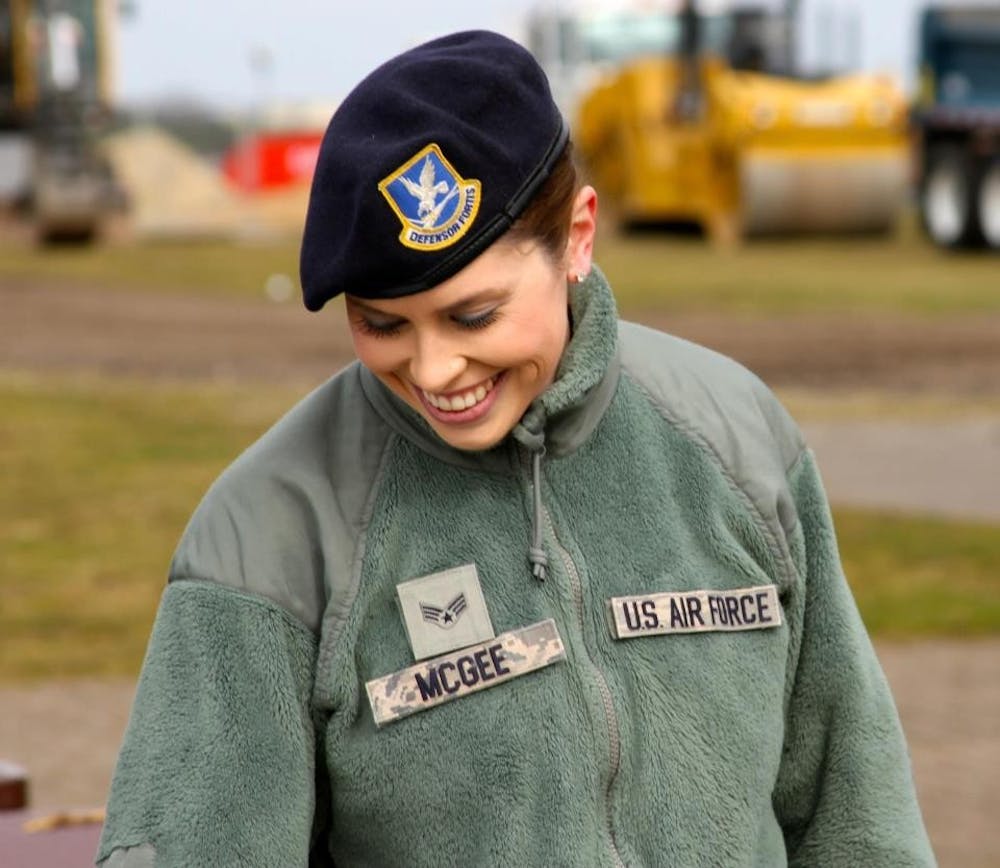Lindsay Gutierrez, a graduate student at the ASU School of Social Work, returned to the United States and civilian life in September of 2016 after completing two deployments in the U.S. Air Force.
She was happily married and had a master's degree in human relations from the University of Oklahoma – but with that, Gutierrez said, "I was a few situations and choices away from being homeless."
About 55,000 women veterans are homeless, according to Final Salute Inc., a nonprofit that provides homeless women veterans with safe housing and career assistance, and Gutierrez said she believes the real number is higher than recorded.
“It’s out of sight and out of mind,” Gutierrez said. “Women veterans are the invisible vet; we blend into society and we’re just not seen.”
She said the programs in place with the U.S. Department of Veteran Affairs, also known as the VA, are tailored toward men, leaving women veterans like Gutierrez with little support when acclimating to civilian life.
“It is definitely a challenge for all veterans to re-acclimate themselves,” Gutierrez said. “We all have different situations we go through that contribute to (post-traumatic stress disorder).”
Gutierrez said a large of number of women veterans must deal with sexual trauma from their time in the service.
Seventy percent of women veterans are also single parents, according to Final Salute.
“Women are scared to ask for that help,” Gutierrez said. “Especially if they have children.”
Although she is from Oklahoma, Gutierrez enlisted in California, where she would have been sent after her deployment despite not having any ties there. However, her husband Anthony Gutierrez, who is also in the military, is from Atlanta, where Lindsay Gutierrez moved in order to receive support from her husband.
“She would have been affected in the same regard as anyone else that is or was in that type of situation — being potentially homeless,” Anthony Gutierrez said.
He said he didn’t notice the challenges women veterans face until he saw his wife go through them, and that many other veterans are still not aware.
“I didn’t realize it until I saw her going through it,” he said. “Everyone has this general stereotype that a veteran is a male, and it doesn’t even cross their mind that there are homeless female veterans.”
Now Lindsay Gutierrez is hoping to take her story to the national stage through Ms. Veteran America, a competition that seeks to raise awareness of the unique challenges women veterans face.
Gutierrez is one of 25 finalists for the 2017 Ms. Veteran America title, and is raising awareness through her Facebook page.
“Ms. Veteran America is about spreading that awareness and really educating the community about what’s going on and making people realize we have to do something," she said. “If you’re not doing something then you’re a part of the problem.”
Her husband echoed that sentiment.
“It’s just a matter of reality," he said. "There’s not a lot out there for female veterans right now. I feel with the right direction and mindset that (Final Salute and Ms. Veteran America) could be a big advocate and be beneficial in helping get the problem not just under control, but brought to the light.”
Karen Gallagher, a 2016 Pat Tillman Scholar and ASU Ph.D student, works closely with The Pat Tillman Veterans Center at ASU, which helps veteran students on campus reach academic success. In her doctoral work, Gallagher studies issues of the transition to civilian life and how it affects classroom performance.
Gallagher said that, though more resources need to be directed toward organizations such as Final Salute Inc., the narrative surrounding women veterans needs to change.
“There is a need, but I would like to see the need coming from female veterans extending a hand and offering empowerment,” Gallagher said. “The older veterans need to be the ones who turn around and extend a hand and make sure the younger veterans have a place to turn to; to make sure the message that gets across is you are not broken, you have survived and you may need support but you are not broken.”
Reach the reporter at oakao@asu.edu or follow @sayo_akao on Twitter.
Like The State Press on Facebook and follow @statepress on Twitter.




